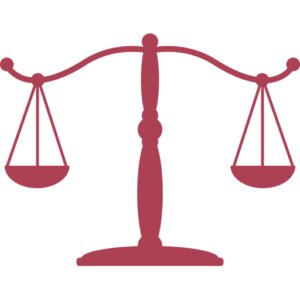Best Military Law Lawyers in Netherlands
Share your needs with us, get contacted by law firms.
Free. Takes 2 min.
Or refine your search by selecting a city:
List of the best lawyers in Netherlands
About Military Law in Netherlands
The field of Military Law in the Netherlands encompasses a wide range of legal issues that pertain to members of the Dutch armed forces. It includes statutory regulations that govern military personnel's conduct, as well as rules regarding military discipline, court-martial proceedings, and service-related issues. The goal of Military Law is to ensure that members of the military uphold national and international laws and perform their duties in a manner that is consistent with the country's legal, ethical, and military standards.
Why You May Need a Lawyer
There are several scenarios where individuals might require legal assistance in the realm of Military Law in the Netherlands:
- Disciplinary Actions: Facing disciplinary charges can have significant repercussions on a military career. Legal representation can help navigate the process and defend against allegations.
- Court-Martial Proceedings: Legal counsel is essential when standing trial in a court-martial to ensure fair treatment and proper defense.
- Service Conditions: Disputes regarding pay, promotions, or administrative decisions can benefit from legal assistance for resolution.
- Veterans' Benefits: Ensuring the receipt of proper benefits and compensation after service may require legal guidance, particularly for those injured or retired.
- Human Rights Violations: Cases involving alleged human rights violations, either domestically or in international missions, require specialized legal expertise.
Local Laws Overview
The Netherlands has a comprehensive legal framework for Military Law that incorporates national defense laws, military disciplinary codes, and international humanitarian laws. Key aspects include:
- Military Penal Code: This code outlines offenses and punishments specific to military personnel.
- Disciplinary Law: Establishes processes for addressing breaches in military discipline, ranging from minor infractions to severe offenses.
- Service Law: Covers regulations related to the terms and conditions of military service, including rights and obligations.
- Regulation on Deployment: Legal provisions for the deployment of troops, both domestically and internationally, ensuring compliance with national and international mandates.
Frequently Asked Questions
1. What is military law?
Military law refers to the legal system that governs the conduct and actions of military personnel. It includes rules for discipline, service conditions, and legal proceedings specific to the armed forces.
2. Who enforces military laws in the Netherlands?
Military law in the Netherlands is enforced by military courts, military police, and specific units within the Ministry of Defence responsible for legal and disciplinary matters.
3. Can I be subject to military law if I am a civilian?
Civilians are generally not subject to military law unless they are employed by the military or involved in operations where military jurisdiction is extended.
4. What is a court-martial?
A court-martial is a military court that tries members of the armed forces for breaches of martial laws and crimes committed under military jurisdiction.
5. How can I appeal a military court decision?
Military court decisions can often be appealed through a higher military tribunal or the civil judiciary, depending on the nature and context of the case.
6. What rights do I have during a military tribunal?
Individuals have the right to fair trial procedures, legal representation, and appeal within the military justice system, reflecting the principles of justice under Dutch law.
7. Are international armed conflicts subject to Dutch military law?
Yes, Dutch military personnel must adhere to both national military law and international humanitarian laws during conflicts.
8. What is the role of the military ombudsman?
The military ombudsman is an independent body that addresses complaints and ensures fair treatment within the military services.
9. How are crimes by military personnel off-duty handled?
Off-duty crimes by military personnel are typically handled by civilian authorities unless there are specific military implications or interests involved.
10. Can I challenge a deployment order?
Challenging a deployment order generally requires legal justification related to personal, medical, or familial circumstances, and such cases are reviewed by senior military officials or through judicial oversight.
Additional Resources
Individuals seeking further assistance or information on Military Law in the Netherlands may find the following resources useful:
- Ministry of Defence: The official government department responsible for implementing military policy and issues.
- Military Ombudsman: Provides oversight and handles complaints from military personnel.
- Legal Aid Bureau for Military Personnel: Offers legal aid services specializing in military law.
- Veterans' Institute: Resources for service and support for Dutch military veterans.
- National Association of Military Advocates: A professional body of lawyers specializing in military law.
Next Steps
If you need legal assistance in the realm of Military Law, consider taking the following steps:
- Identify the specific legal issue you are facing, whether it’s related to disciplinary action, service conditions, or another area.
- Consult with an expert in military law. It may be beneficial to contact a lawyer with experience in military legal matters or approach legal aid services that deal with military cases.
- Gather necessary documentation that pertains to your case, including service records, correspondence, and any legal notices or charges.
- Prepare questions and areas of concern that you wish to discuss with your legal advisor.
- Consider leveraging additional resources, such as support from veterans' organizations, for supplementary assistance and advice.
Taking these proactive steps can better equip you to navigate the complexities of military law and seek a favorable resolution to your case.
Lawzana helps you find the best lawyers and law firms in Netherlands through a curated and pre-screened list of qualified legal professionals. Our platform offers rankings and detailed profiles of attorneys and law firms, allowing you to compare based on practice areas, including Military Law, experience, and client feedback.
Each profile includes a description of the firm's areas of practice, client reviews, team members and partners, year of establishment, spoken languages, office locations, contact information, social media presence, and any published articles or resources. Most firms on our platform speak English and are experienced in both local and international legal matters.
Get a quote from top-rated law firms in Netherlands — quickly, securely, and without unnecessary hassle.
Disclaimer:
The information provided on this page is for general informational purposes only and does not constitute legal advice. While we strive to ensure the accuracy and relevance of the content, legal information may change over time, and interpretations of the law can vary. You should always consult with a qualified legal professional for advice specific to your situation.
We disclaim all liability for actions taken or not taken based on the content of this page. If you believe any information is incorrect or outdated, please contact us, and we will review and update it where appropriate.
Browse military law law firms by city in Netherlands
Refine your search by selecting a city.
















